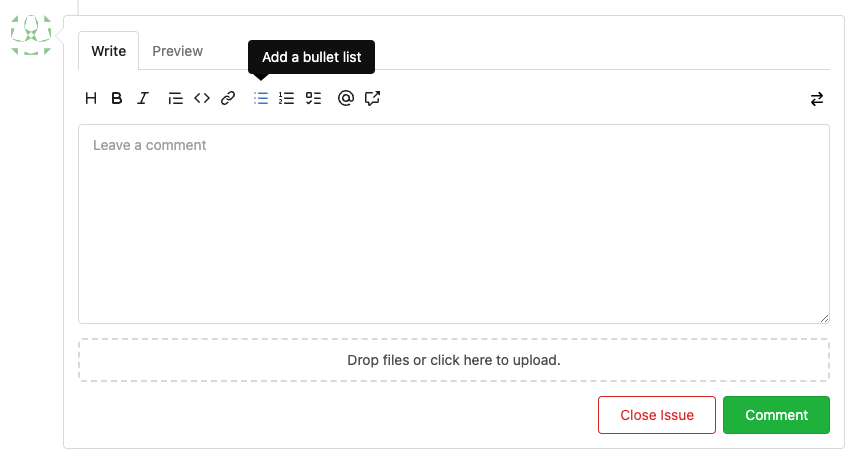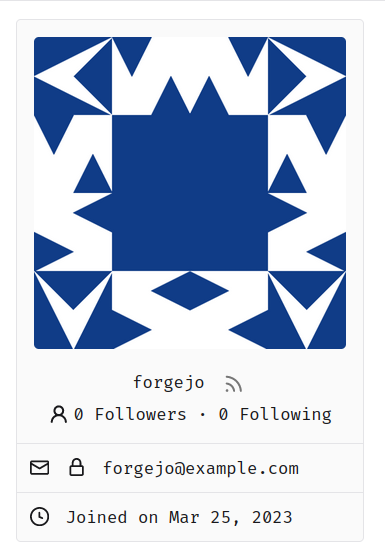1. Remove unnecessary `btn-link` `muted` classes
* Link is link, button is button, I can't see a real requirement to make
a button like a link.
* If anyone insists, please help to show me real example from modern
frameworks / websites, how and why they do so.
* No need to duplicate a lot of class names on similar elements
* Declare styles clearly, for example, `markdown-toolbar` itself should
have `display: flex`, but not use `gt-df` to overwrite the `display:
block`.
2. Remove unnecessary `role` attribute
* https://github.com/github/markdown-toolbar-element/issues/70
* The `markdown-toolbar-element` does want to add `role=button`, but
there is a bug.
* So we do the similar thing as upstream does (add the role by JS),
until they fix their bugs.
3. Indent `markdown-switch-easymde` (before it doesn't have a proper
indent)
Screenshot:

Followup of #23876 according to my unreleased review demanding tooltips.
Additionally
- add a `muted` equivalent for buttons
- convert `switch to legacy` to an actual button
- enroll `switch to legacy` in the builtin pseudo focus cycle
- remove spaces between the buttons
The effect of the `muted` class is what you would expect: The button
loses all of its normal styling, and is defined only by its content instead.
This will help reduce a11y infractions in the future, as that was one of
the major points why people didn't use `<button>` tags and decided on a
bad fix (i.e. through `<div>`s) instead.
## Appearance

---------
Co-authored-by: silverwind <me@silverwind.io>
- Add placeholders and aria-label all input fields on these two pages
- Add margin before wiki change message
- Remove labels from release page, replacing them with aria-label
The completion popup now behaves now much more as expected than before
for the raw textarea:
- You can press <kbd>Tab</kbd> or <kbd>Enter</kbd> once the completion
popup is open to accept the selected item
- The menu does not close automatically when moving the cursor
- When you delete text, previously correct suggestions are shown again
- If you delete all text until the opening char (`@` or `:`) after
applying a suggestion, the popup reappears again
- Menu UI has been improved
<img width="278" alt="Screenshot 2023-04-07 at 19 43 42"
src="https://user-images.githubusercontent.com/115237/230653601-d6517b9f-0988-445e-aa57-5ebfaf5039f3.png">
…; add trailing slash to PyPI repository URL (in accordance to PEP-503)
This should solve Issue #23980, by moving the space in front of the
package name and the package name out of the `gitea-origin-url` block.
It also adds a trailing slash to the PyPI repository URL in accordance
to [Python PEP-503](https://peps.python.org/pep-0503/).
Co-authored-by: Lunny Xiao <xiaolunwen@gmail.com>
I've heard many reports of users getting scared when they see their own
email address for their own profile, as they believe that the email
field is also visible to other users. Currently, using Incognito mode
or going over the Settings is the only "reasonable" way to verify this
from the perspective of the user.
A locked padlock should be enough to indicate that the email is not
visible to anyone apart from the user and the admins. An unlocked
padlock is used if the email address is only shown to authenticated
users.
Some additional string-related changes in the Settings were introduced
as well to ensure consistency, and the comments in the relevant tests
were improved so as to allow for easier modifications in the future.
---
#### Screenshot (EDIT: Scroll down for more up-to-date screenshots)
***Please remove this section before merging.***

This lock should only appear if the email address is explicitly hidden
using the `Hide Email Address` setting. The change was originally tested
on top of and designed for the Forgejo fork, but I don't expect any
problems to arise from this and I don't think that a
documentation-related change is strictly necessary.
---------
Co-authored-by: silverwind <me@silverwind.io>
One of the steps in #23328
Before there were 3 different but similar functions: dict/Dict/mergeinto
The code was just copied & pasted, no test.
This PR defines a new stable `dict` function, it covers all the 3 old
functions behaviors, only +160 -171
Future developers do not need to think about or guess the different dict
functions, just use one: `dict`
Why use `dict` but not `Dict`? Because there are far more `dict` than
`Dict` in code already ......
One of the proposals in #23328
This PR introduces a simple expression calculator
(templates/eval/eval.go), it can do basic expression calculations.
Many untested template helper functions like `Mul` `Add` can be replaced
by this new approach.
Then these `Add` / `Mul` / `percentage` / `Subtract` / `DiffStatsWidth`
could all use this `Eval`.
And it provides enhancements for Golang templates, and improves
readability.
Some examples:
----
* Before: `{{Add (Mul $glyph.Row 12) 12}}`
* After: `{{Eval $glyph.Row "*" 12 "+" 12}}`
----
* Before: `{{if lt (Add $i 1) (len $.Topics)}}`
* After: `{{if Eval $i "+" 1 "<" (len $.Topics)}}`
## FAQ
### Why not use an existing expression package?
We need a highly customized expression engine:
* do the calculation on the fly, without pre-compiling
* deal with int/int64/float64 types, to make the result could be used in
Golang template.
* make the syntax could be used in the Golang template directly
* do not introduce too much complex or strange syntax, we just need a
simple calculator.
* it needs to strictly follow Golang template's behavior, for example,
Golang template treats all non-zero values as truth, but many 3rd
packages don't do so.
### What's the benefit?
* Developers don't need to add more `Add`/`Mul`/`Sub`-like functions,
they were getting more and more.
Now, only one `Eval` is enough for all cases.
* The new code reads better than old `{{Add (Mul $glyph.Row 12) 12}}`,
the old one isn't familiar to most procedural programming developers
(eg, the Golang expression syntax).
* The `Eval` is fully covered by tests, many old `Add`/`Mul`-like
functions were never tested.
### The performance?
It doesn't use `reflect`, it doesn't need to parse or compile when used
in Golang template, the performance is as fast as native Go template.
### Is it too complex? Could it be unstable?
The expression calculator program is a common homework for computer
science students, and it's widely used as a teaching and practicing
purpose for developers. The algorithm is pretty well-known.
The behavior can be clearly defined, it is stable.
The first step of #23328
This PR cleans:
1. Dead function like `SubStr`
2. Unnecessary function like `UseHTTPS`, it should be provided by
`window.origin`
3. Duplicate function like `IsShowFullName`, there was already a
`DeafultShowFullName`
I have searched these removed functions globally, no use in code.
Right now the authors search dropdown might take a long time to load if
amount of authors is huge.
Example: (In the video below, there are about 10000 authors, and it
takes about 10 seconds to open the author dropdown)
https://user-images.githubusercontent.com/17645053/229422229-98aa9656-3439-4f8c-9f4e-83bd8e2a2557.mov
Possible improvements can be made, which will take 2 steps (Thanks to
@wolfogre for advice):
Step 1:
Backend: Add a new api, which returns a limit of 30 posters with matched
prefix.
Frontend: Change the search behavior from frontend search(fomantic
search) to backend search(when input is changed, send a request to get
authors matching the current search prefix)
Step 2:
Backend: Optimize the api in step 1 using indexer to support fuzzy
search.
This PR is implements the first step. The main changes:
1. Added api: `GET /{type:issues|pulls}/posters` , which return a limit
of 30 users with matched prefix (prefix sent as query). If
`DEFAULT_SHOW_FULL_NAME` in `custom/conf/app.ini` is set to true, will
also include fullnames fuzzy search.
2. Added a tooltip saying "Shows a maximum of 30 users" to the author
search dropdown
3. Change the search behavior from frontend search to backend search
After:
https://user-images.githubusercontent.com/17645053/229430960-f88fafd8-fd5d-4f84-9df2-2677539d5d08.mov
Fixes: https://github.com/go-gitea/gitea/issues/22586
---------
Co-authored-by: wxiaoguang <wxiaoguang@gmail.com>
Co-authored-by: silverwind <me@silverwind.io>
The default command to setup a NuGet registry from the command line is:
```
dotnet nuget add source --name Gitea --username your_username --password your_token <gitea-origin-url/>
```
The feed name `Gitea` is hard-coded into the command template, so each
registry will by default have the same feed name. I know templates can
be overridden using the `custom` folder. But in my opinion, it's a good
practice to make a slight change in the default template to make the
feed name more context specific:
```
dotnet nuget add source --name {{.PackageDescriptor.Owner.Name}} --username your_username --password your_token <gitea-origin-url/>
```
The _graceful_ should fail less when the `.editorconfig` file isn't
properly written, e.g. boolean values from YAML or unparseable numbers
(when a number is expected). As is... information is lost as the
_warning_ (a go-multierror.Error) is ignored. If anybody knows how to
send them to the UI as warning; any help is appreciated.
Closes #20694
Signed-off-by: Yoan Blanc <yoan@dosimple.ch>